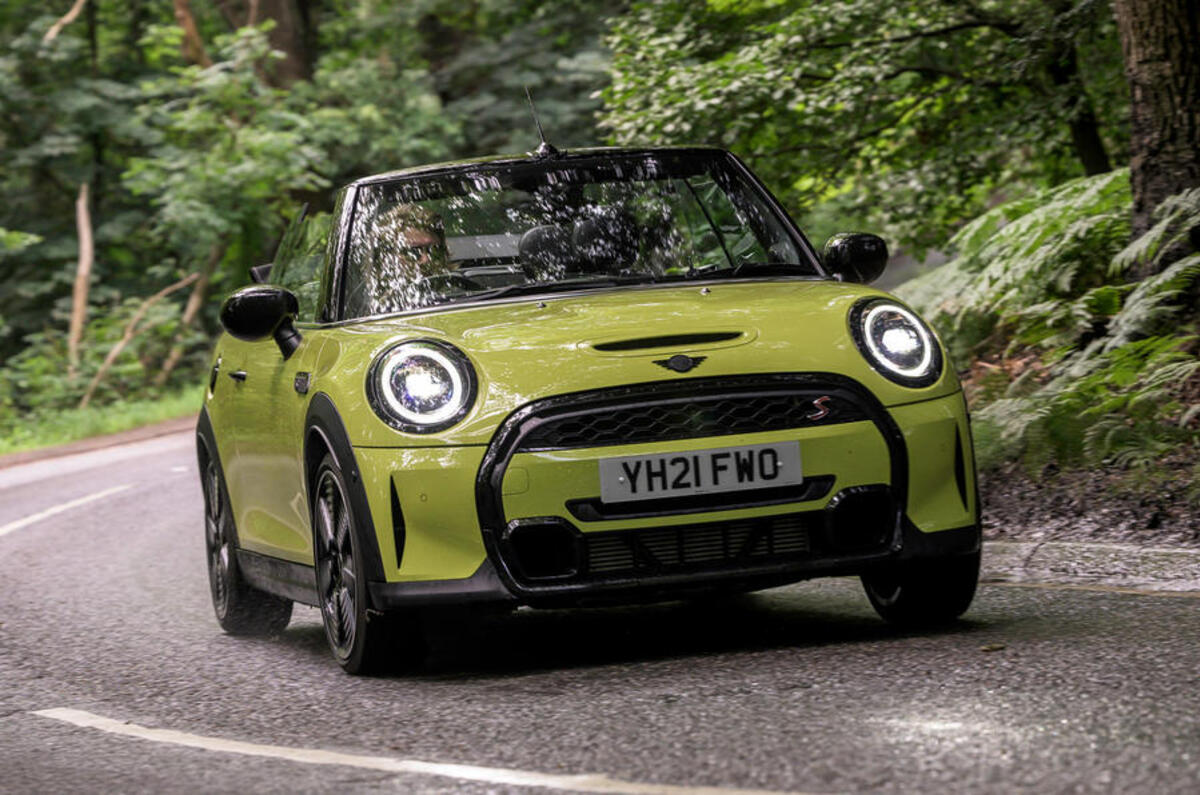Mini has stopped production of all model variants with a manual gearbox, Autocar can confirm.
The manufacturer cited supply-chain constraints as the main cause for the decision, these having been exacerbated by the war in Ukraine and the global semiconductor shortage.
Production therefore stalled, it told Autocar, and due to this, plus increased customer demand, a decision to halt production of manual cars was taken to “ensure production stability”.
The cheapest Mini hatchback now on offer is the entry-level Mini 3dr Cooper Classic auto, which costs £18,815, compared with the manual version's £17,415 - a £1400 increase.
Mini confirmed this will be temporary and " will be reinstated in the future when circumstances allow". Before this decision, all of its models were available to buy with a manual gearbox, bar the Mini Electric.
The company said: “Current circumstances, including the war in Ukraine and semiconductor shortages, are causing supply chain restrictions across the global automotive industry.
“In order to secure maximum production output to meet increasing customer demand, our product offer needs to be simplified.
“This solution is the most effective way to ensure production stability so that we can continue to supply all our customers with new Minis.”
Earlier this year, the Mini factory in Oxford was forced to shut down by a shortage of parts caused by Russia’s invasion of Ukraine.
Other car makers forced to slow production because of war-related shortages included Mini parent company BMW, Audi, Mercedes-Benz, Porsche, Skoda and Volkswagen.








Join the debate
Add your comment
We are the victims of this. We bought a manual approved used car from Mini a couple years ago. There're lots of problems appeared in the first year and we found a hole in our gearbox. We approached Mini in May, and the respond slowly and said they didn't have the parts for us to replace the gearbox. No further explanation. We talked to the salesman in the store, and he got no idea why Mini could provide us the parts at all. Overall Mini was not helpful and just kept delaying in providing us a possible solution or alternative options. Mini is still selling their maunal approved used cars (more than half of their approved used are manual). It is really unethical for them to do that. They stop producing the parts, then they should also stop selling used manual transmission cars!
My company is a Tier 1 supplier to many manufacturers. The move to manual is not a shortage or issue with parts specifcally for manual versions. It's so thay can optimise the vehicle mix based on their limited supply of chips so they are prioritising the higher value automatics to get more revenue and hopefully profit. Everyone is doing it. You try ordering a lowest spec vehicle, you probably can't or will be given a leadtime twice as long as a higher spec one!